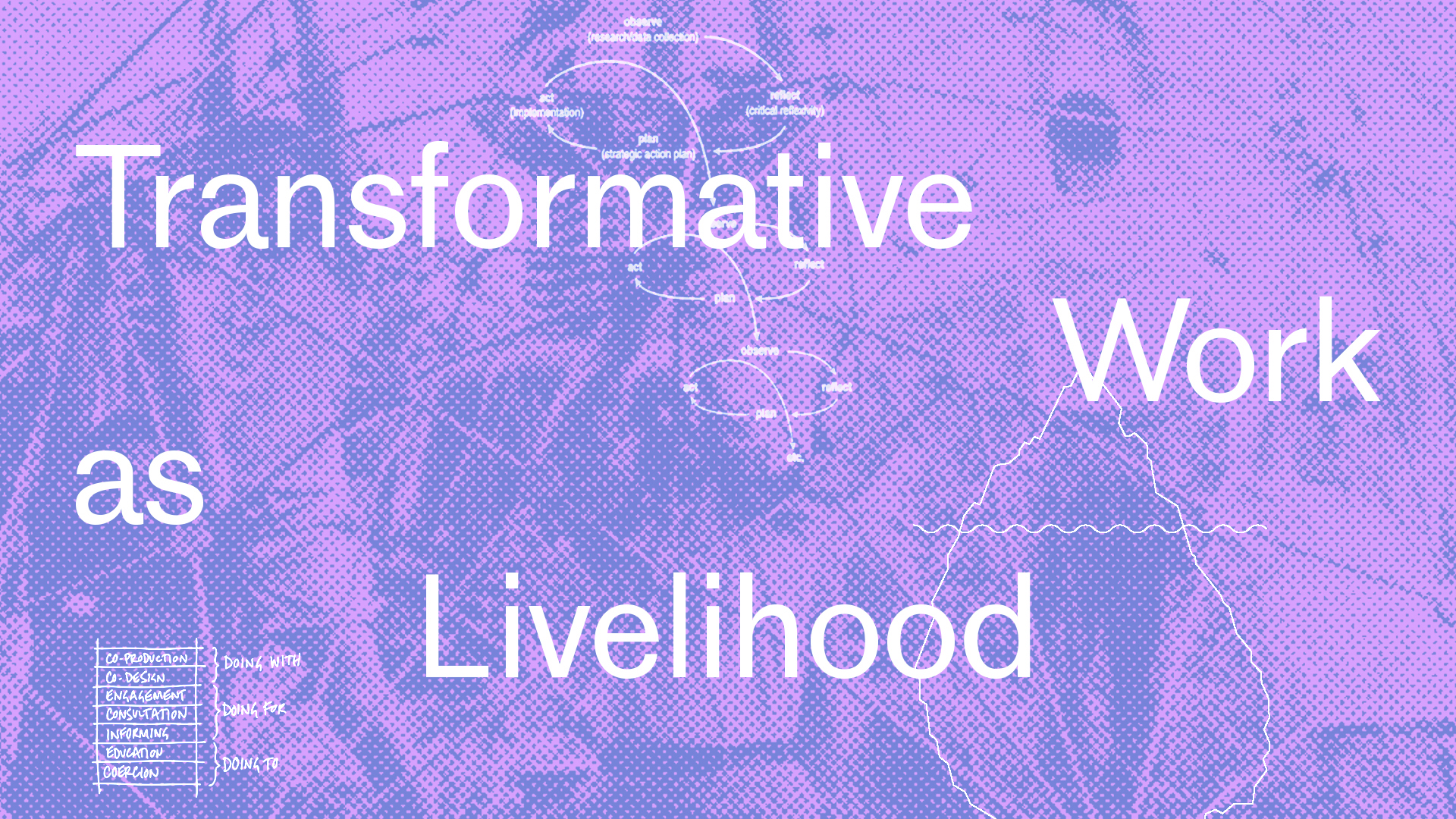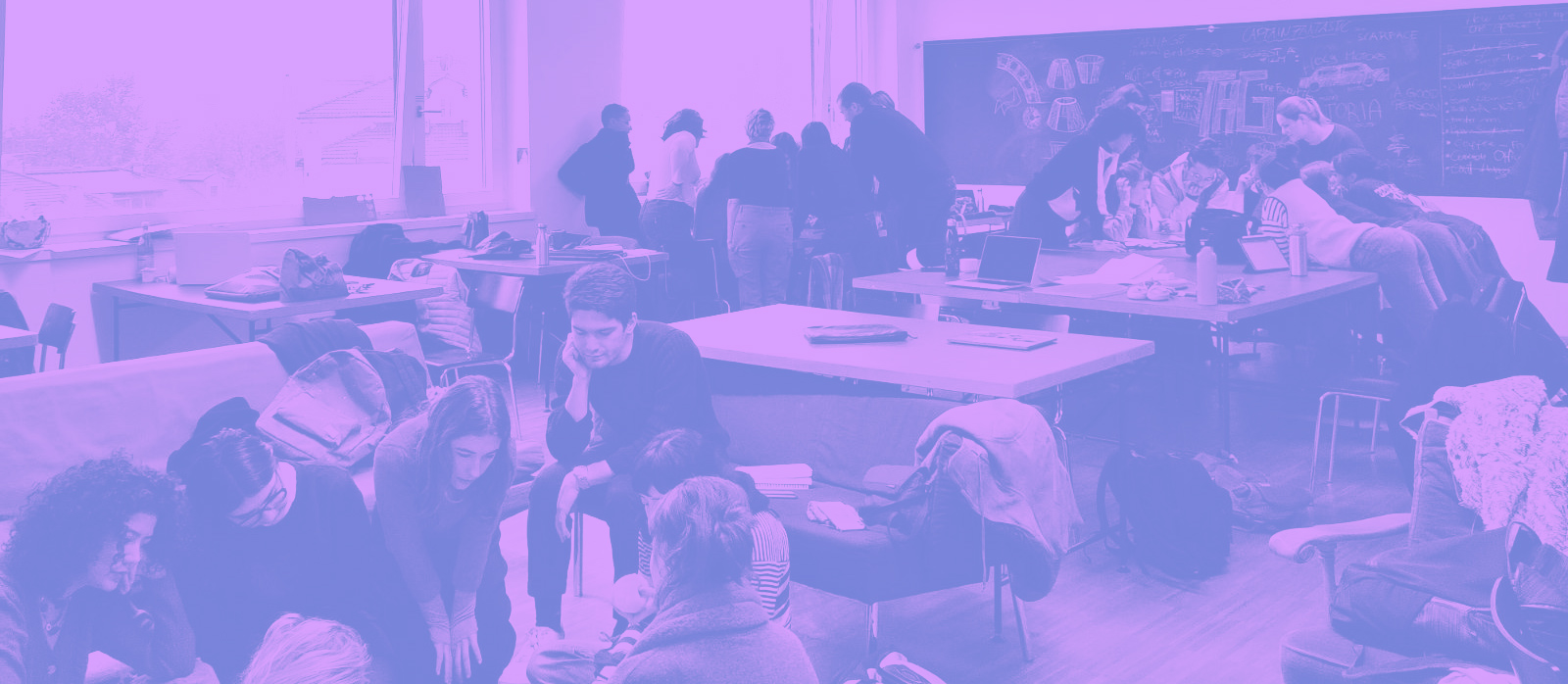I went to the Futuress talk by Cooperativa de Disenio last week. They’re a feminist worker co-op from Argentina. They’ve been running for 11 years and have 12 members, all women. They do a mix of product, identity and audiovisual design work for communities, cooperatives and recovered factories.
It was very interesting to hear about how a different co-op is run. The way they spoke about their co-op felt so familiar: it’s not perfect, but “it fits us like a glove” — they can shape it however they like and put their values into practice.
The talk was entirely focused on how they work as a co-op, rather than their design work. They spent a fair bit of time explaining what being part of a co-op means, what the seven cooperative principles are, how they govern themselves.
This made me reflect on the talks I usually give — I realised that I try to cram way too much into the 30-45 minutes I have. I usually cover a bit about my own practice and how I got into this type of work, touching on Evening Class and Designers + Cultural Workers, and then onto Common Knowledge: who we are, what a co-op is, why we’re a co-op, the kind of work we do, our attitude towards technology and politics and a bunch of examples of our work. No wonder I’m always exhausted afterwards!
I think I need to split my talk out into a few separate ones, something like:
- Exploring different collaborative forms: learning groups, unions, cooperatives
- An introduction to worker cooperatives: what they are; how to set one up; how to make decisions
- How digital technology can amplify grassroots politics
- Community-led design practices
Community-led design practices is the one I’m most interested in but least certain about. Sonia and I developed a workshop centred around this for a LCC masters course back in 2021. It ended up feeling quite speculative because we weren’t actually working with communities directly, just thinking about how we might design the design process. It was a little too meta.
I’m really curious as to how you can involve diverse groups of people in the design process while still eventually producing something that does what they need and that most people involved are happy with. I think the main issue is that this takes time, so much more than we ever have in our projects.
I asked the people from Cooperativa de Disenio how they approach this, as they do quite a lot of work with other non-hierarchical groups and communities. They agreed that it can be difficult and slow. You have to meet people where they are, slow down to their pace, listen to their point of view and decentre yourself.
I agreed with all of this, but I still feel that there are missing pieces. Maybe that’s just because there is no one methodology that will suit every project — you have to develop new methods to suit each new situation.
There seems to be so much interest in worker co-ops for designers at the moment. In both this Futuress talk and my talk at FBAUL the other week, there were lots of questions from the audience on the practical details of starting and running a co-op like:
- How can new graduates start or get involved with a co-op?
- How do you make sure hierarchies don’t seep in?
- How do you deal with problems?
- What legal form should it take in Italy/in Portugal?
- Is there anyone who gives accountancy advice to co-ops?
I would love to run a question and answer session exploring questions like this for people interested in starting worker co-ops.
I think the best way to do this would be to get a few design cooperatives from around the world involved, like Cooperativa de Disenio, Partner & Partners in the US and Commonin Australia. There are so many legal considerations that are specific to each country, so having co-ops from a range of countries there would help answer some of the specifics.
I think it would also be good to have multiple co-ops so we could compare different approaches. From 2020–21 I regularly met with six people from other co-ops working from Space4 (a coworking space and co-op incubator in north London). We discussed any challenges we were facing or ways that we wanted to improve our co-ops, gave each other advice and held each other accountable. I think we all got so much out of learning from each other and sharing our different approaches.

